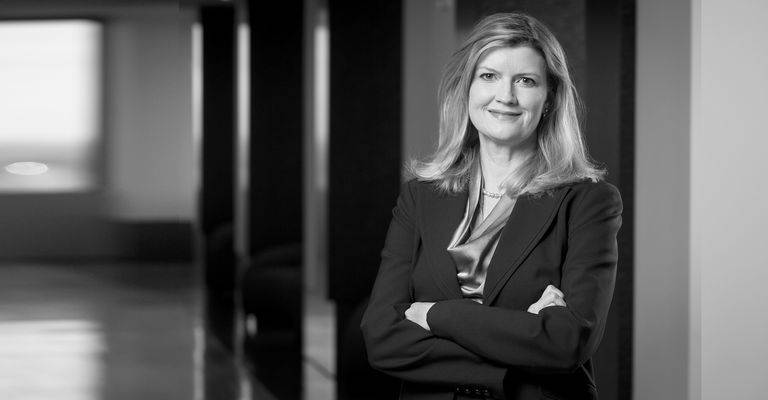Trump Second Term: Legal Tracker
Trump Controlling the FTC? Picks for FTC Chair and FTC Commissioner Signal Significant Changes
Not so fast, Big Tech and Healthcare
Dec 16, 2024On Tuesday, December 10, Donald Trump announced two picks for placements on the Federal Trade Commission: Commissioner Andrew Ferguson for Chair and Mark Meador for Commissioner. While Meador’s appointment requires Senate confirmation, Ferguson’s appointment will take effect immediately. The picks suggest significant changes for the FTC toward a pro-business bent for much of the economy, with the noteworthy exceptions of continued scrutiny of big tech firms and healthcare.
Andrew FergusoN
Although Commissioner Ferguson has thus far had a brief tenure on the FTC—he was confirmed in April 2024—his extensive dissents signal significant external and internal changes in approach to the FTC.
Externally, Ferguson has had inconsistent views on big tech, simultaneously suggesting he will continue the past administrations’ challenges to big tech but that he will pull back on scrutiny of AI issues. For example, Ferguson said in an X post that, under his leadership, the Federal Trade Commission “will end Big Tech’s vendetta against competition and free speech,” and has elsewhere railed against censorship. However, in a recent dissent, Commissioner Ferguson criticized the FTC for “[t]reating as categorically illegal a generative AI tool merely because of the possibility that someone might use it for fraud,” which “threatens to turn honest innovators into lawbreakers and risks strangling a potentially revolutionary technology in its cradle.” Clients should expect further development of this tension between cracking down on big tech (which was also the stated objective for President-elect Trump’s pick to lead the DOJ’s Antitrust Division) and reining in the FTC’s efforts to regulate artificial intelligence.
Ferguson’s leadership will also likely lead to a significant reduction in consumer protection cases. In President-elect Trump’s December 10 announcement of Ferguson via Truth Social, Trump represented that Ferguson “will be the most . . . pro-innovation FTC Chair in our Country’s History.” This announcement signals that the Federal Trade Commission under Chair Ferguson will default in favor of innovative practices over consumer protection concerns.
Additionally, with Ferguson as Chair, the Commission will likely engage in less rulemaking. In his dissent to the Federal Trade Commission’s non-compete rule, Ferguson argued that “Section 6(g) of the Federal Trade Commission Act does not authorize the Commission to make substantive rules regulating private conduct.” Additionally, he noted that the Supreme Court’s major-questions doctrine would prevent rules like the non-compete rule anyway because “Congress has not clearly and ambiguously granted” the Federal Trade Commission authority to promulgate such a rule. This skepticism likely derives from Ferguson’s background as the solicitor general for Virginia, a staffer in Senator Mitch McConnell’s office, and a clerk for Justice Clarence Thomas.
One open question is what Chair Ferguson will do when it comes to healthcare. Then-Commissioner Ferguson recused himself from the FTC’s recent challenge to PBMs’ pricing of insulin. However, as a Commissioner, Ferguson expressed a preference for hospitals and other providers to remain under local control rather than being owned by distant companies. Such sentiments could suggest a continued scrutiny of private equity acquisitions of healthcare providers.
For clients in the agriculture industry, it should be noted that Ferguson has not expressed any views on agriculture.
Internally, clients should expect a reduced use of the FTC’s in-house court system, overseen by two administrative law judges (ALJs). In one public statement, Ferguson argued that “[d]ual-layer tenure protections for FTC ALJs insulate subordinate officers from the President’s control,” which he believed “undermine[s] self-government and empower[s] the administrative state to the people’s detriment.” This is highly significant for companies being investigated by the FTC: courts have increasingly agreed that the FTC may only challenge purely past conduct in the in-house court system, whereas the FTC can only bring suit in federal court to stop imminent or ongoing conduct. If the FTC stops using its in-house court system, it likely means that purely past conduct, measured at the time the FTC files suit, will be insulated from review.
Clients should also expect a continued low morale among FTC staff. Staff morale was low under Lina Khan because of her top-down style of leadership, and this appointment is not likely to remedy that problem. In a recent concurring and dissenting statement, Ferguson referred to staff of the Commission as “government bureaucrats,” a highly derogatory term for staff. Additionally, in a document that Punchbowl News claims was Ferguson’s pitch to be FTC Chair, Ferguson noted he would stop “novel and legally dubious consumer protection cases” because “businesses should not fear that the FTC will punish them for honest conduct that offends the sensibilities of beltway bureaucrats.”
Mark Meador
Mark Meador, President-elect Trump’s pick for FTC Commissioner (to fill Lina Khan’s seat) will likely cement a 3-2 pro-business majority for the FTC. In particular, clients should expect that if Meador is confirmed by the Senate, the FTC to be more merger-friendly than the prior Commission. Additionally, the new makeup of the FTC is more likely to accept remedies as settlement than the prior FTC.
That said, there are likely to be some interesting differences between Meador and Ferguson, especially on big tech. Mark Meador is closely aligned with Jonathan Kanter, the current Assistant Attorney General for the Antitrust Division under President Biden. Meador even started a law firm with Kanter. His law firm has filed lawsuits on behalf of clients against big tech companies alleging anticompetitive behavior, including claims that a company monopolized portions of the ad tech industry. When asked about a pending motion to dismiss based on a refusal-to-deal defense, Meador asserted that “calling every exclusionary contract provision a mere refusal to deal completely denudes Section 2 [of the Sherman Act] of any meaning.” It will be interesting to see if Meador takes a different view on competition issues that involve big tech but are outside of Chair Ferguson’s censorship concerns.
Meador’s background also suggests a more institutionalist bent than Commissioner Ferguson. Before joining his current law firm, Meador was a staffer for Senator Mike Lee, a staff attorney at the DOJ Antitrust Division, and a staff attorney at the FTC’s Healthcare Division. Meador is also likely to support the 2023 merger guidelines, as he was part of the drafting process. This might conflict with Ferguson’s opinions on the guidelines: At an event in June, Ferguson said that, even though he would not be open to completely rescinding the guidelines, he would be “open to reforming them.” Meador is thus more likely to be respectful of staff views and to argue in favor of the current dual competition enforcer regime.
Meador’s background as staff is likely to lead to increased inquiries into the healthcare industry. Meador’s first job on staff was to litigate the FTC’s “pay for delay” cases, although he left the FTC shortly after the Supreme Court’s decision in FTC v. Actavis that jump-started enforcement in that area. Separately, Meador has previously written about antitrust concerns in the healthcare industry, specifically those involving pharmacy benefit managers. It will be interesting to see whether the new FTC continues its enforcement push in this area: one early sign will be whether the FTC staff publishes additional studies on PBMs after the first interim report received significant criticism.
For clients in the agriculture industry, it should be noted that Meador has not expressed any views on agriculture. However, when he was a staff member at the DOJ’s Antitrust Division, he was in the Transportation, Energy & Agriculture Section. His experience in that section will likely inform any decisions he has to make in regard to food and agriculture products while an FTC Commissioner.
Conclusions
Overall, President-elect Trump’s two picks for the Federal Trade Commission will likely cause significant changes in the Commission’s priorities. Ferguson’s leadership is likely to lead to less consumer protection cases, less rules, and more deference given to artificial intelligence companies, but his overall views on the big tech industry are ideologically incoherent. That said, he is likely to favor businesses and will be very skeptical towards the FTC’s in-house system and staff attorneys.
For Meador, he is ideologically aligned with Trump on skepticism toward big technology companies. Additionally, his experience as a staff attorney will likely lead to him advocating for more antitrust inquiries into the healthcare industry. However, Meador’s alignment with current Assistant Attorney General Kanter and likely support of the 2023 merger guidelines might be a source of tension between Ferguson and Meador.
Related Practice Areas
-
Antitrust
-
Healthcare & Life Sciences






